lunes, 27 de mayo de 2013
Signals Student Loan Crisis Looms: FICO Risk Survey
Signals Daily Ticker Despite recent headlines cheering positive trends in the economy, there is still much to be concerned about, according to FICO's new quarterly survey of bank risk professionals. More than two-thirds of risk managers are seriously concerned about the debt loads held by students in the country. 67% of respondents believe delinquencies of student loans will rise, up a considerable 19% from the previous survey. 'They are worried about the amount of student loans that are out there and the ability of those students to repay them,' says Mark Greene, CEO of FICO, which provides credit scores used by both consumers and creditors and is widely considered the industry standard. With tuition prices on the rise each and every year, it is no surprise that the total amount borrowed is also on the upswing. The student who graduated in the class of 2009 had an average of $24,000 in student loans. But that's just the average. Some students are accountable for sums totaling $100,000. (See: The Economic Agony of Today's Twenty-Somethings) The Federal Reserve reported last year that student debt has actually surpassed credit card debt and predicts the total amount owed has topped $1 trillion. Greene's advice to students is: 'Be careful what you borrow.' 'Clearly education has a great return on investment so there is no suggestion you should avoid taking out loans, but be careful what you are getting into,' he says. 'Manage your student loans as carefully as you would your mortgage, your credit card or something else.' Other problem areas listed in the survey include credit card debt and mortgage debt. Credit card debt increased 8.5% to $5.6 billion in November from October, the biggest gain since March 2008. 45% of risk managers surveyed expect credit card delinquencies to rise while 21% expect a decline. And 54% of respondents believe credit card balances will rise. Those figures are more pessimistic than the previous quarter. As for mortgage debt, 47% of risk managers predict mortgage delinquencies will rise while 13% expect to see a decrease. 'If you are looking for risk managers to declare that we've turned the corner, they are not declaring that yet,' says Greene. Do you think the economy is improving or still has a long way to go? More from The Daily Ticker: Forget Harvard and a 4-Year Degree, You Can Make More as a Plumber in the Long Run, Says Prof. Kotlikoff Brain Drain: Most College Students Learn Next to Nothing, New Study Says Jame's Altucher's 8 Alternatives to College Related Quotes: ^GSPC 1,292.18 -0.30 -0.02% BAC 6.76 -0.11 -1.60% C 31.36 +0.09 +0.29% GS 98.96 -0.80 -0.80% JPM 36.44 -0.22 -0.60% WFC 29.54 -0.08 -0.29% PNC 61.51 +0.21 +0.34% FAZ 31.80 +0.23 +0.72% FAS 75.30 -0.53 -0.70% XLF 13.83 -0.04 -0.26% ^DJI 12,432.54 -16.91 -0.14% DFS 26.16 +0.30 +1.16% V 100.99 +1.88 +1.90% MA 342.76 +1.29 +0.38% MS 16.92 -0.18 -1.05%
jueves, 23 de mayo de 2013
Signals BRICS call for open selection of next World Bank chief
Signals BRICS call for open selection of next World Bank chief MEXICO CITY (Reuters) - A meeting of BRICS major emerging countries discussed the selection process of the next head of the World Bank and emphasized it should be open to all countries, rejecting the tradition that the job automatically goes to an American, a senior BRIC official said on Saturday. The official, speaking after a meeting of the BRICS - Russia, South Africa, Brazil, India and China - said the United States had not circulated the name of its proposed candidate for the World Bank. Asked whether emerging economies could field their own candidate for the post, the official said: 'That is certainly a discussion we will have.' (Reporting By Lesley Wroughton; Editing by Chizu Nomiyama)
domingo, 19 de mayo de 2013
Forex Stock likely to breakout
Forex
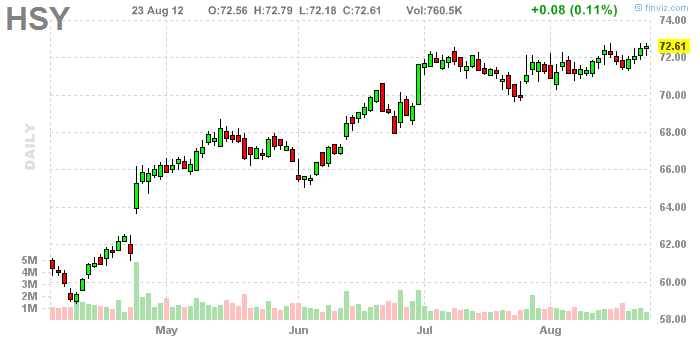
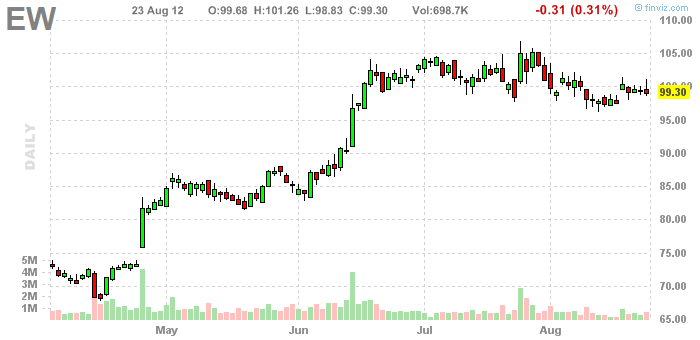
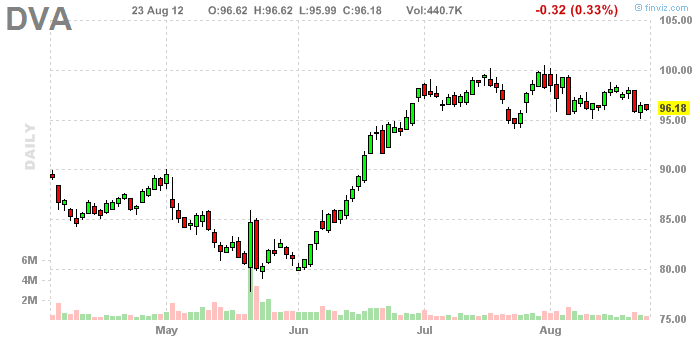
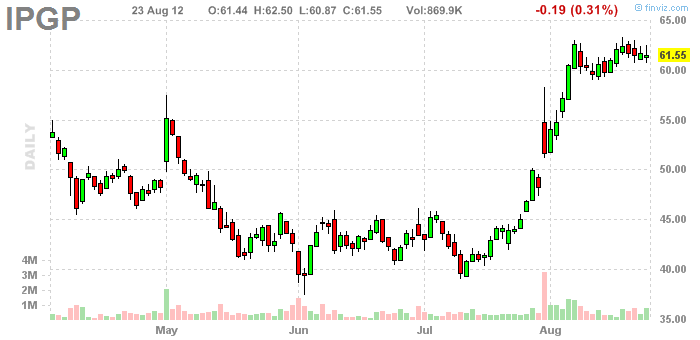
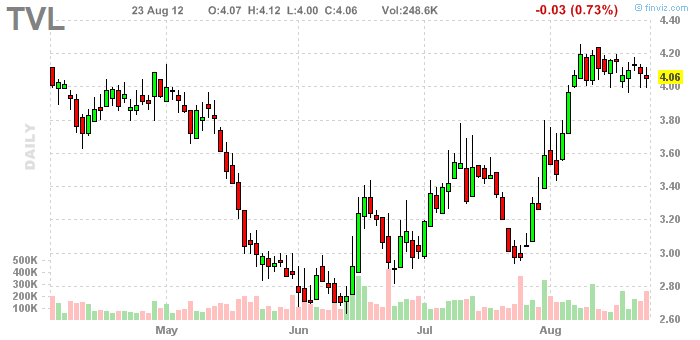
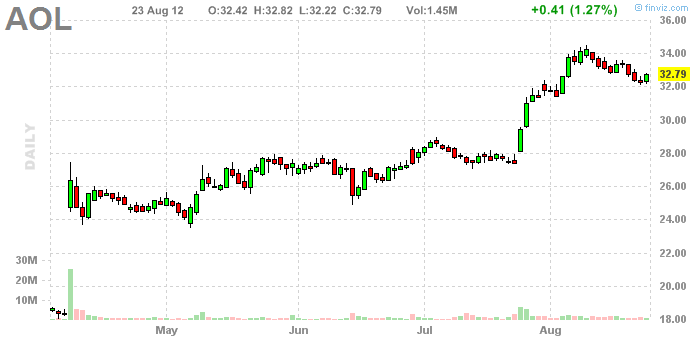


HSY, EW, DVA, TVL, AOL, and IPGP are currently setting up for a possible breakout. All these stocks have excellent momentum currently and are going sideways or pulling back and offer buy opportunity on high volume breakouts.






viernes, 17 de mayo de 2013
Oil Retail sales: Shoppers pulled back at the holidays
Oil Retail sales: Shoppers pulled back at the holidays CNNMoney.comBy Chris Isidore | CNNMoney.com Consumers pulled back on their spending in December despite the holiday shopping season, according to a government report released Thursday. The Commerce Department report showed that overall retail sales rose only 0.1% compared to November -- falling short of forecasts of economists surveyed by Briefing.com, who were expecting a 0.4% rise. Excluding auto sales, which were relatively strong in the month, sales fell 0.2%; compared to forecasts of a 0.3% rise. Part of the reduced spending came from lower prices. Lower gasoline prices trimmed spending at gas stations by 1.6% compared to November. And spending at grocery stores also declined 0.2% in the same period amid reports of some lower food prices. Paul Dales, senior U.S. economist for Capital Economics, said it was somewhat positive that lower prices allowed non-discretionary spending to decline 0.6%, at the same time that discretionary spending rose 0.4%. 'It appears they're saving money when they go to fill up their cars, and spending it on something more enjoyable,' he said. But there were also declines in some retail categories that typically get a lift from holiday shoppers. The biggest was a 3.9% drop at electronic and appliance stores. Department store sales also fell 0.2%, leading to a 0.8% drop in general merchandise stores. Non-store retailers, typically online retailers, suffered a 0.4% drop. Mark Vitner, senior economist with Wells Fargo Securities, said his firm's measure of 'core' sales -- which excludes autos, gas stations and building materials -- posted the first monthly decline in a year. These excluded sectors are heavily influenced by volatile prices or by the business cycle. 'The decline here gets our attention,' he said. 'We do not think the consumer is completely going into hiding, but we do think that the pace of consumer spending growth is poised to slow.' Economists said that with other economic readings showing that stagnant wages were not keeping up with prices overall, and rising credit card balances, there's a limit in how much consumers will be able to spend -- even as a declining savings rate suggested that consumers were more willing to dip into savings. 'Households have realized that the savings only go so far,' said Dales. Disappointing December spending left overall sales up 6.5%, compared to 6% a year earlier which excludes auto sales. Bucking the trend were clothing retailers, which enjoyed a 0.7% rise in spending; and a 1.6% rise at building material and garden equipment retailers, which Dales said may have been helped by unusually mild weather. View this article on CNNMoney
Suscribirse a:
Entradas (Atom)